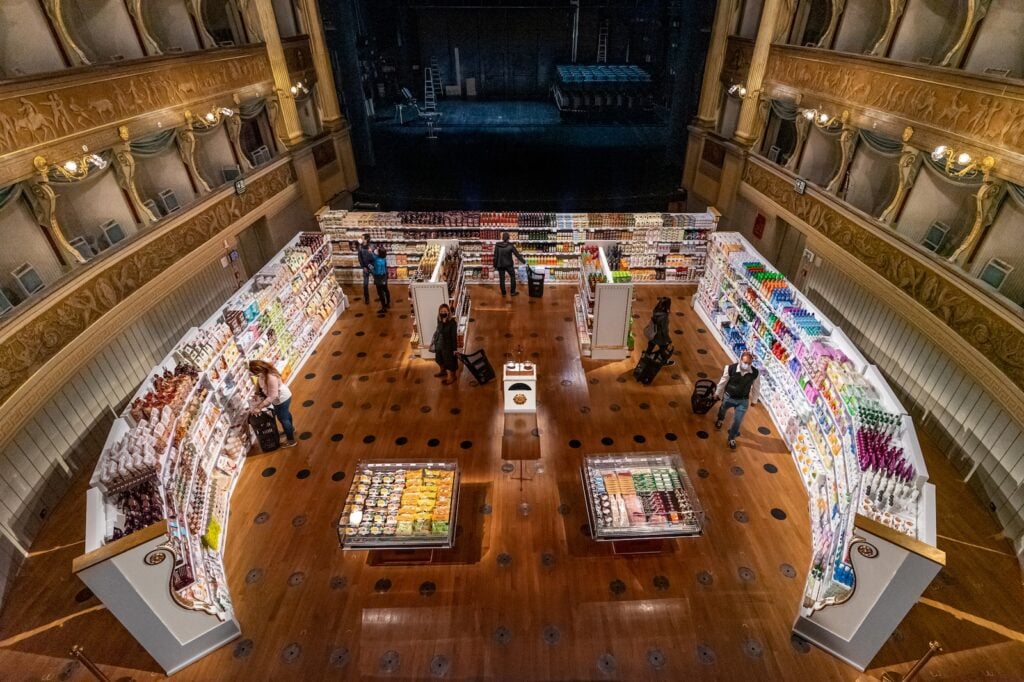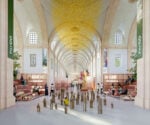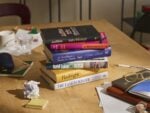Anna Scalfi Eghenter – Collectors anonymous

Mostra personale.
Comunicato stampa
Comunicato stampa in forma di intervista
(English text below)
Pinksummer (d’ora in poi PS): “Socrate: quale conoscenza dunque possiamo dire che costoro avessero quando posero i nomi e furono legislatori, prima ancora che alcun nome fosse stato dato e che quelli lo conoscessero, se non è possibile imparare le cose altrimenti che dai nomi?”. Nel Cratilo, Platone mette in tensione l’idea che i nomi abbiano un legame naturale con le cose e quella che essi siano, al contrario, pura convenzione. Il tuo Lavoro tratta con le regole dei codici (del gioco, della strada, della legislazione): pensi che i tuoi dispositivi, le tue opere, tendano a mostrare una verità naturale e preesistente oppure che le tue traduzioni e interpretazioni ne rivelino il carattere convenzionale e negoziabile?
Anna Scalfi Eghenter (d’ora in poi ASE): Mi interessa capire le regole del gioco in atto in ogni campo di cui varco la soglia, e ancora a monte mi interessa sperimentare le dinamiche di accesso a quel campo, con quale dispositivo emerso da quel campo se ne può rinnovare la visione.
PS: Foucault ci ha insegnato che il linguaggio non è mai neutro, ma parte di un sistema di potere che disciplina e normalizza. Nella tua pratica artistica, con le sue peculiarità alternate, la sovversione linguistica sfiora, talvolta senza incarnarlo, il paradosso (come quello di aprire un teatro con un supermercato durante una pandemia); questa sovversione linguistica diventa anche sovversione dei dispositivi di potere?
ASE: Mi diverte svelare il paradosso senza la retorica della sovversione predisposta dai dispositivi di potere.
PS: Alcuni miti aborigeni australiani raccontano che il mondo è nato cantandolo. Le tue opere nascono sempre da una urgenza di dire qualcosa: credi che l’arte sia un modo di “creare il mondo”, o quantomeno di colmare le sue contraddizioni attraverso il linguaggio? Può essere l’arte un canto collettivo che apre nuovi spazi di realtà?
ASE: L’urgenza è un sentimento che diventa progettuale nella determinazione del suo concretizzarsi.
PS: Huizinga e Caillois hanno visto nel gioco una matrice fondativa della cultura. Se, come nelle tue pratiche performative, il linguaggio è un gioco (con regole, ruoli, turni, mosse), nel tuo caso la posta in gioco è la consapevolezza? La libertà?
ASE: È il processo, il continuum e l’istante che lo compone multiplo e costruttivo. L’equilibrio in questa disponibilità permanente a rinnovare la consapevolezza e la libertà possibile.
PS: Nel tuo Lavoro sembri mettere costantemente alla prova l’idea di confine – tra arte e società, tra norma e sovversione, tra linguaggio e azione “senza parole e senza numeri”. Il linguaggio per te è una porta, una trappola o uno strumento di abitazione del mondo? Credi che rinominare o quantomeno ribattezzare il mondo possa cambiarlo?
ASE: Il frame può cambiare ogni performance in atto ritenuta oggetto. Il frame è l’oggetto.
PS: Che cos’è la bellezza?
ASE: Esclusa quella naturale o spirituale è un codice la cui presunzione legittima pratiche di discriminazione.
PS: Abbiamo come l’impressione che Pinksummer, in qualità di galleria privata, sia il frame ideale del progetto che presenterai; in questo senso non vogliamo introdurre la tua mostra, come accade facciano le gallerie private, come la prima personale con noi. Non abbiamo idea se ce ne saranno altre – e anzi a noi sembra che ti piaccia non avere una galleria che ti rappresenti con annunci solenni, non avere opere pronte e détourné da vendere ai collezionisti, avere il tuo centro studi per affiancare le tue produzioni ibride, aver fondato Scalfi & Eghenter LTD per seguire le commissioni private e finanziarti i progetti che ancora devono accadere. Sul piatto crediamo ci sia un progetto che ti calza a pennello, e che negozierai con noi. Che cosa presenterai da Pinksummer?
ASE: Avendolo evitato con molta determinazione nel corso degli anni, non potrebbe esserci occasione più giusta per iniziare a collaborare con una galleria privata di questa, in cui è necessaria al progetto stesso. Anche qui ho cercato di capire le regole del gioco per partecipare dal mio punto di vista, rispettando il contesto, chi lo anima, con quali obiettivi. L’opera sono i collezionisti, la linfa che può nutrire la ricerca, queste persone del mondo reale che però deviano straordinariamente nella complicità di immaginare possibili azioni non richieste, senza precedenti, irrazionali, talvolta spiazzanti. A Genova, in palazzo Ducale, nella vostra sede, intervengo su questo, sull’urgenza da parte dei collezionisti di acquistare un lavoro e sostenere lo sviluppo della ricerca di cui quell’oggetto è parte. Sulla fascinazione estetica e concettuale che li induce a partecipare. Il progetto iniziò nel 2013 durante le fiere a Basilea, Londra, Parigi e successivamente a Milano, pubblicando nei maggiori quotidiani degli annunci per “collezionisti anonimi”, proponendo riunioni di mutuo aiuto per coloro che non possono smettere di collezionare arte contemporanea. Avranno luogo varie sessioni, durante le quali prendere atto dei contenuti condivisi, che verranno a loro volta tradotti su altri supporti. Alcuni saranno già presenti nello spazio, altri verranno aggiunti nel corso delle settimane. Nella stanza più piccola, dove una scala collega a spazi senza accesso, sono installati artefatti di ricerca eventualmente aperti alla partecipazione dei collezionisti, tramite i quali possono essere riattivati e contestualizzati. Pronti ad ogni evenienza.
Press release in interview format
Pinksummer (hereafter PS): “Socrates: What knowledge, then, can we say they had when they gave names and were legislators, before any names had been given and before they knew them, if it is not possible to learn things other than from names?”. In Cratylus, Plato contrasts the idea that names have a natural connection with things with the idea that they are, on the contrary, pure convention. Your Work deals with the rules of codes (of games, of the street, of legislation): do you think that your devices, your works, tend to show a natural and pre-existing truth, or that your translations and interpretations reveal their conventional and negotiable nature?
Anna Scalfi Eghenter (hereafter ASE): I am interested in understanding the rules of the game at play in every field I step into, and even further upstream, I am interested in experimenting the dynamics of access to that field — by what device arising from within it its vision may be renewed.
PS: Foucault taught us that language is never neutral, but part of a system of power that disciplines and normalizes. In your artistic practice, with its alternating peculiarities, linguistic subversion touches on paradox (such as that of opening a theatre with a supermarket during a pandemic), sometimes without embodying it; does this linguistic subversion also become a subversion of the devices of power?
ASE: I take pleasure in unveiling the paradox without resorting to the rhetoric of subversion preordained by the devices of power.
PS: Some Australian Aboriginal myths tell us that the world was sung into existence. Your works always seem to arise from an urgency to say something: do you believe that art can be a way of creating the world, or at least of bridging its contradictions through language? Can art be seen as a collective song that opens up new spaces of reality?
ASE: Urgency is a feeling that turns projective in the determination of its own realization.
PS: Huizinga and Caillois regarded play as a foundational matrix of culture. If, as in your performative practices, language is a game (with rules, roles, turns and moves), what is at stake for you — awareness? Freedom?
ASE: It is the process, the continuum and the instant that composes it, multiple and constructive — the balance in this permanent openness to renew awareness and possible freedom.
PS: In your Work you seem to constantly test the notion of boundaries — between art and society, between norm and subversion, and between language and “action without words or numbers”. For you, is language a doorway, a trap, or a means of inhabiting the world? Do you believe that renaming — or at least rechristening — the world can change it?
ASE: The frame may shift with every performance in act, regarded as object. The frame is the object.
PS: What is beauty?
ASE: Excluding the natural or the spiritual, it is a code whose presumption legitimizes practices of discrimination.
PS: We have the impression that Pinksummer, as a private gallery, is the ideal frame for the project you will be presenting; in this sense, we do not want to introduce your exhibition, as private galleries do, as your first solo show with us. We have no idea if there will be others — in fact, it seems to us that you like not having a gallery that represents you with solemn announcements, not having works ready and détourné to sell to collectors, having your own study center to support your hybrid productions, having founded Scalfi & Eghenter LTD to follow private commissions and finance projects that are yet to happen. We believe a project is on the table that suits you perfectly, and that you will negotiate with us. What will you present at Pinksummer?
ASE: Having avoided it with great determination over the years, there could be no more fitting occasion to begin collaborating with a private gallery of this kind, where it is necessary to the project itself. Here too, I have sought to understand the rules of the game in order to participate from my perspective, respecting the context, those who animate it, and with what aims. The work is the collectors — the lifeblood that can nourish research — these people from the real world who nonetheless divert extraordinarily into the complicity of imagining possible actions that are unrequested, unprecedented, irrational, and, at times, disorienting. In Genoa, at Palazzo Ducale, in your venue, I intervene on this: on the urgency felt by collectors to acquire a work and support the development of the research of which that object is part; on the aesthetic and conceptual fascination that compels them to participate. The project began in 2013 during fairs in Basel, London, Paris, and subsequently in Milan, publishing in major newspapers announcements for “anonymous collectors,” proposing mutual-aid meetings for those who cannot stop collecting contemporary art. Several sessions will take place, during which the shared content will be acknowledged and subsequently translated into another medium. Some will already be present in the space, while others will be added over the weeks. In the smallest room, where a staircase connects to inaccessible spaces, research artifacts are installed, potentially open to collectors’ participation, through which they can be reactivated and contextualized. Ready for any eventuality.



